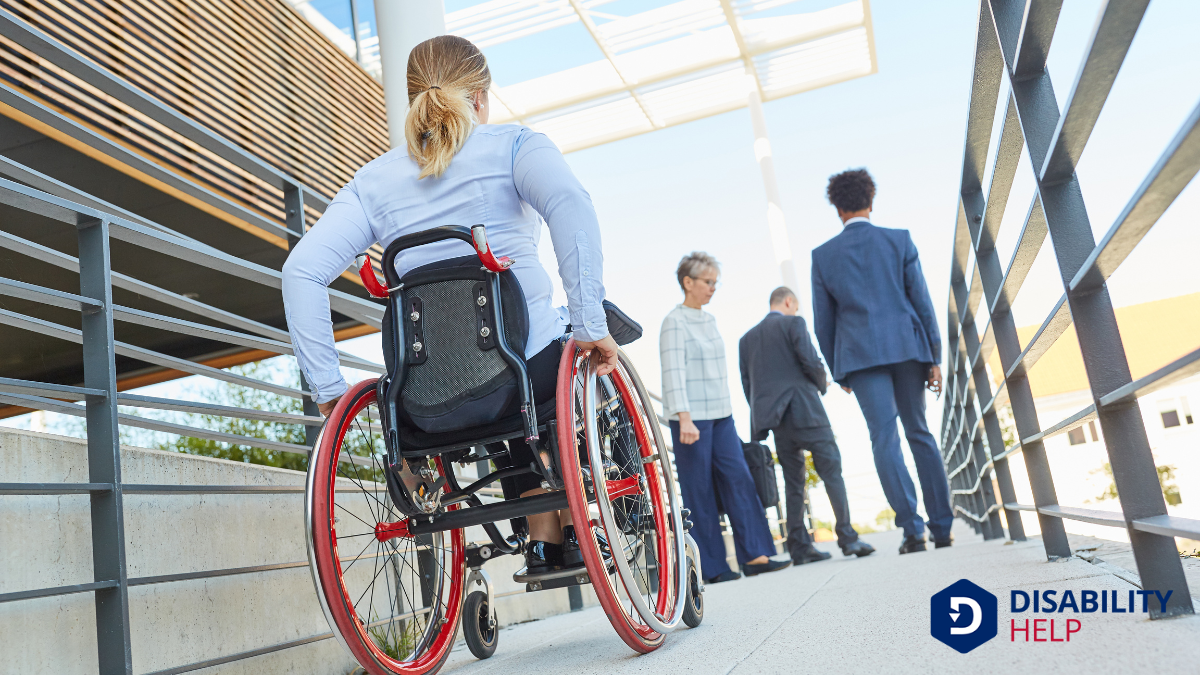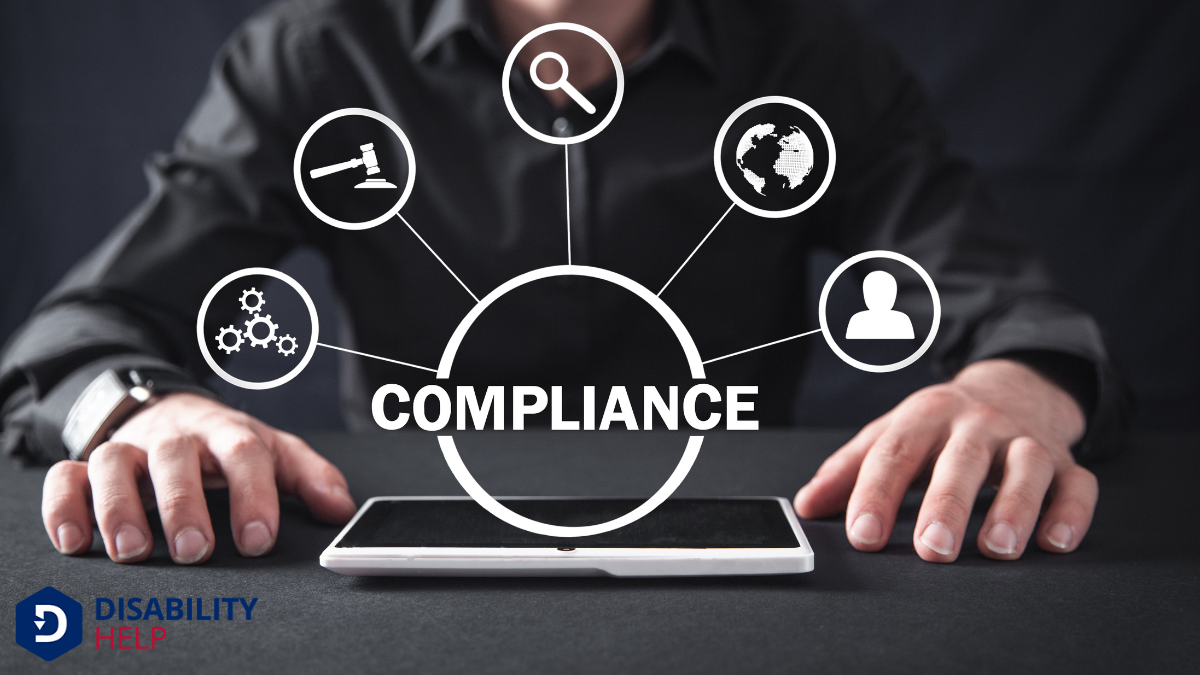When we explore how disability protections are enforced at the state level, we see a complex interplay of state disability offices, advocacyThe act of arguing in favor of, supporting, or defending the rights and interests of individuals or ... groups, and compliance mechanisms that adaptA grassroots disability rights organization in the U.S. that focuses on promoting community-based se... federal laws to local contexts. These entities work together to promote inclusivity and safeguard rights, yet challenges persist in ensuring consistent enforcement. We might wonder how these groups overcome obstacles and collaborate to shape an equitable future for individuals with disabilities.
Key Takeaways
- State disability offices adapt federal laws to local contexts, ensuring protections are relevant and effective.
- They provide resources and advocacy, assisting individuals in understanding and exercising their rights.
- State agencies conduct training to improve awareness and implementation of disability protections.
- Collaboration with local advocacy groups enhances enforcement and supports community-driven compliance efforts.
- Regular audits and assessments by state entities ensure adherence to disability protection standards.
Overview of Federal and State Disability Laws
When we explore the landscape of disability protections, understanding both federal and state laws is essential. Federal laws like the Americans with Disabilities Act (ADA)A U.S. law that prohibits discrimination against individuals with disabilities in all areas of publi... and the RehabilitationThe process of helping individuals with disabilities achieve and maintain their optimal physical, se... Act set the foundation for rights and protections. They guarantee accessibilityThe design of products, devices, services, or environments to be usable by people with disabilities...., prohibit discrimination, and establish standards for reasonable accommodationsModifications or adjustments in healthcare settings to support patients with disabilities. across various sectors.
However, these federal laws are just the beginning. State laws often expand upon these protections, addressing specific needs and contexts within their jurisdictions. They can offer additional rights or more stringent enforcement mechanisms.
By examining both levels of legislation, we gain an all-encompassing view of how disability protections function. This dual layer of protection guarantees that individuals with disabilities have the support they need to participate fully in society.
Let's appreciate how these laws work together.
The Role of State Disability Offices

State disability offices play an essential role in bridging the gap between federal laws and the unique needs of local communities. They help guarantee that federal disability protections are adapted to fit state-specific contexts, making them more effective and meaningful.
We recognize that traversing these complex systems can be intimidating, but state offices provide guidance, resources, and advocacy to assist us. They’re our first point of contact when we've questions about our rights or need help resolving an issue.
Moreover, these offices conduct training sessions and workshops to raise awareness and educate both individuals with disabilities and service providers.
Challenges in Enforcing Disability Protections
Despite the robust framework of federal and state disability laws, we often encounter significant hurdles in enforcing these protections effectively. Limited resources and funding constraints can impede our ability to monitor compliance and address violations.
Additionally, the complexity of maneuvering layers of bureaucracy can discourage individuals from reporting infractions or seeking redress. Inconsistent interpretation and application of laws across different regions further complicate our efforts.
When state agencies lack adequate training, they may struggle to understand and implement disability protections correctly. Furthermore, a lack of awareness about rights among individuals with disabilities can lead to underreporting of issues.
We must acknowledge these challenges to develop solutions that guarantee everyone receives the protections they deserve under the law.
Impact of Local Advocacy Groups
Local advocacy groups play an essential role in driving change and enforcing disability protections. We recognize their unwavering commitment to improving the lives of people with disabilities.
These groups often serve as the bridge between individuals, communities, and policymakers, ensuring that voices are heard and needs are addressed. They engage in activities such as raising awareness, providing education, and fostering collaboration among stakeholders.
Through persistent efforts, advocacy groups influence legislation and hold local authorities accountable for implementing disability protections. They empower individuals to understand their rights and assist in maneuvering complex systems.
Strategies for Ensuring Compliance

Guaranteeing compliance with disability protections requires a strategic approach that combines vigilance, collaboration, and innovation.
We must first stay informed about the laws and regulations that protect individuals with disabilities. By understanding these frameworks, we can better identify any gaps or violations.
Collaboration with local advocacy groups and state agencies is essential for sharing insights and resources. Together, we can develop thorough strategies to enhance enforcement.
Regular audits and assessments also play an important role. They help us guarantee that institutions and businesses adhere to the required standards.
Providing training and educational programs can foster a culture of inclusivity and awareness.
Let’s embrace technology to streamline reporting processes and track compliance more effectively, guaranteeing that everyone receives the protection they deserve.
Frequently Asked Questions
How Can Individuals Report Violations of Disability Protections?
We can report disability protection violations by contacting our state’s disability rightsThe legal and human rights afforded to individuals with disabilities, often the focus of advocacy an... agencyThe capacity of individuals with disabilities to act independently and make their own choices. or filing a complaint with the Department of Justice. Let’s guarantee everyone’s rights are respected by taking action when we witness discrimination.
Are There Financial Penalties for Non-Compliance With Disability Laws?
Yes, there are financial penalties for non-compliance with disability laws. We face fines and sometimes additional sanctions to guarantee adherence. Let's explore how understanding these penalties can motivate compliance and protect rights effectively.
What Resources Are Available for Employers to Understand Disability Laws?
Let's guarantee we comprehend disability laws by accessing resources like state agency websites, training workshops, and legal guides. We can also consult disability advocacyEfforts and services aimed at protecting and promoting the rights and interests of individuals with ... groups for guidance, guaranteeing we're compliant and supportive of individuals with disabilities.
How Do State Enforcement Mechanisms Differ From Federal Ones?
State enforcement mechanisms often vary because each state may have unique agencies and procedures. We should explore how these differ from federal methods by considering state-specific laws and resources available to guarantee compliance and protection.
Can State Disability Protections Vary Significantly Between States?
Yes, they can. We might notice significant differences in state disability protections due to varying local laws, resources, and priorities. It's vital we comprehend our state's specific regulations to guarantee we receive appropriate support and rights.
Conclusion
To summarize, we've seen how state disability protections involve a collaborative approach. State disability offices adapt federal laws to local needs, while local advocacy groups make certain authorities stay accountable. Despite the challenges in enforcement, regular audits and training programs help us maintain high standards. By working together, we can promote inclusivity and safeguard the rights of individuals with disabilities. Let's continue to support these efforts, making sure everyone enjoys equal opportunities and protection under the law.






